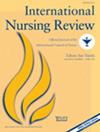Facilitators and Barriers to Investment in the Brazilian Nursing Workforce: A Qualitative Study
Abstract
Aim
To understand the factors influencing investment in nursing from the perspective of relevant interest holders in nursing.
Introduction
Brazil's healthcare system faces significant inequities in healthcare access, leading to health disparities. There is a strong link between healthcare access and health outcomes, highlighting the importance of nursing roles and regulatory policies.
Methods
A qualitative descriptive analysis was conducted using purposive and snowball sampling to recruit and interview 15 participants from various nursing, education, and leadership roles in Brazil. Data were thematically analyzed in Dedoose, ensuring rigor via triangulation, reflexivity, and an audit trail.
Results
Three major themes emerged. First, prioritizing health facilitates investment in nursing. Second, intrinsic challenges include barriers within the profession, such as educational issues and fragmented professional structures. Third, extrinsic barriers, including health system fractures and institutional issues, hinder investment in nursing.
Discussion
Effective policy reform requires overcoming barriers in nursing education, leadership, employment, and service delivery. In Brazil, priority areas include clarifying scopes of practice, updating regulatory frameworks, and expanding regional access to nursing education.
Conclusion
Investing in nursing across education, employment, leadership, and service delivery is worthwhile for a country's health and economy. Educational opportunities translate to job opportunities only if governments invest in all levels of nursing and if a country can absorb well-trained and qualified nurses into the healthcare system.
Implications for nursing and nursing policy
This study revealed obstacles and enabling factors related to an investment in nursing by Brazil, offering insights applicable to countries with similar health systems. Recommendations include removing intrinsic restraints, endeavoring to empower nurses, and eliminating extrinsic barriers, all of which could support investment in nursing, ultimately an investment in population health.


 求助内容:
求助内容: 应助结果提醒方式:
应助结果提醒方式:


